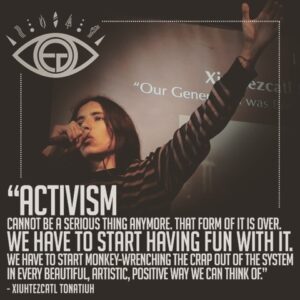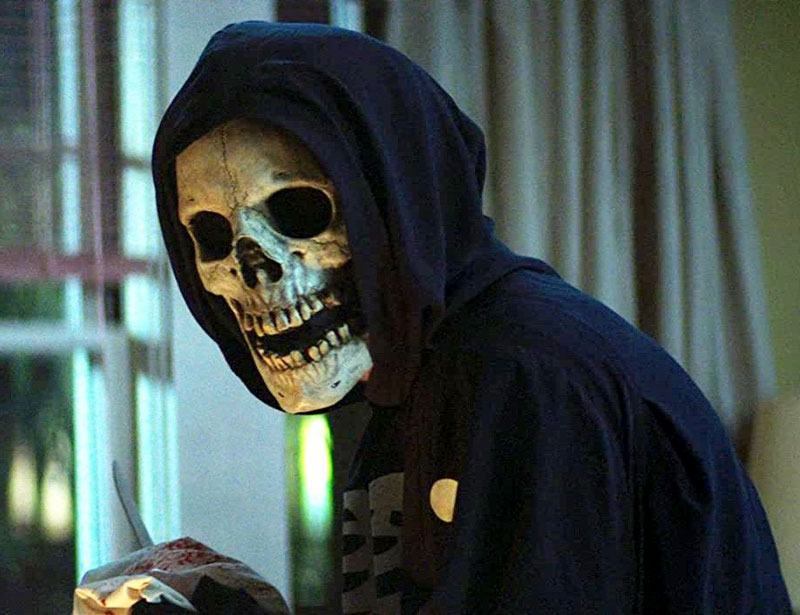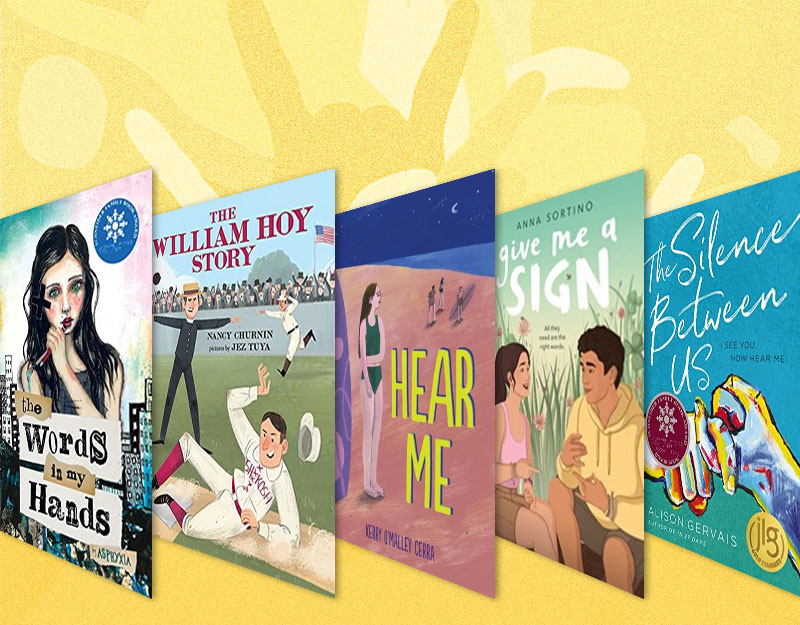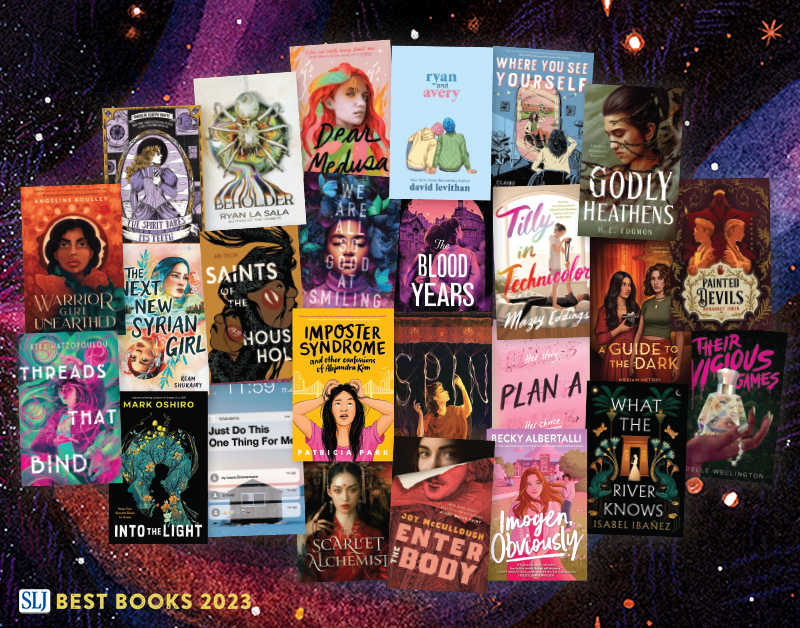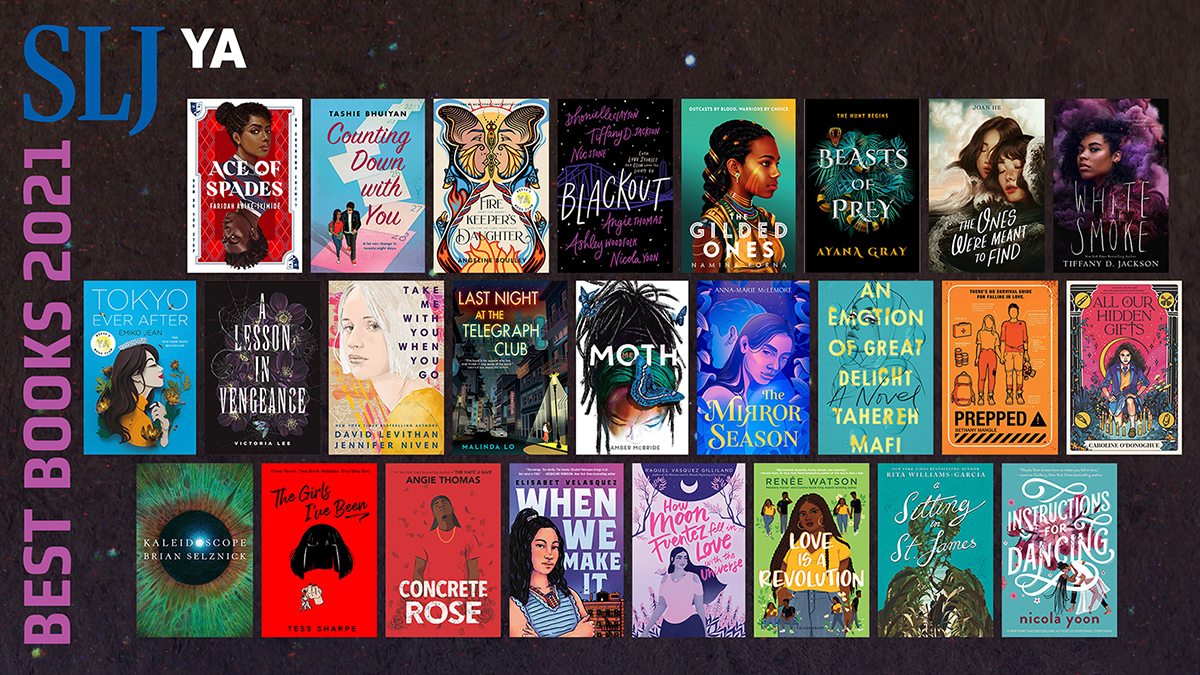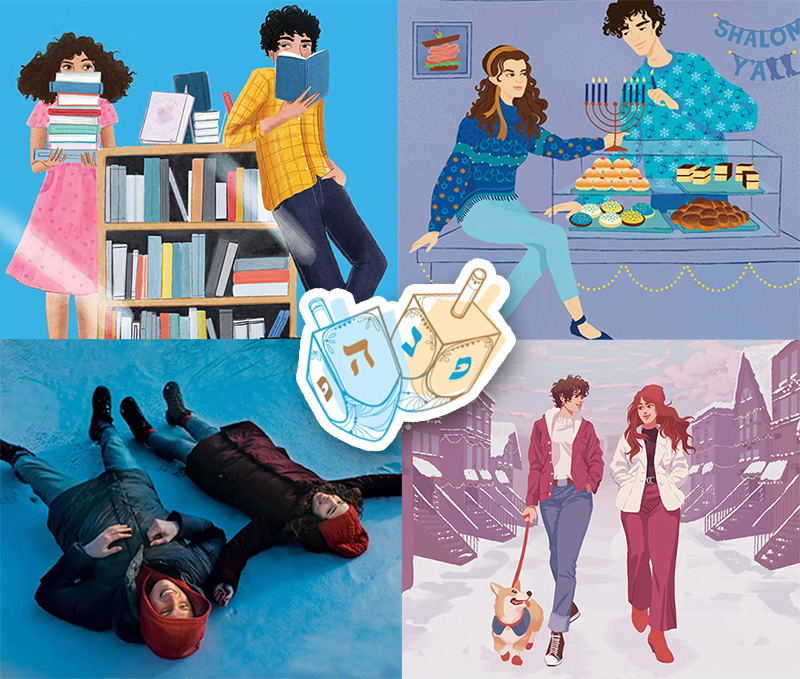#ReadForChange: Reading into Hurricane Season with Joanne O’Sullivan’s Between Two Skies
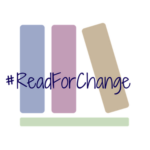 Teen Librarian Toolbox is excited to be partnering with Marie Marquardt for her #ReadForChange project. Hop on over to this post to learn more about the initiative. Today, she and Joanne O’Sullivan join us for a conversation about Hurricane Katrina, climate change, taking action, and O’Sullivan’s 2017 book Between Two Skies.
Teen Librarian Toolbox is excited to be partnering with Marie Marquardt for her #ReadForChange project. Hop on over to this post to learn more about the initiative. Today, she and Joanne O’Sullivan join us for a conversation about Hurricane Katrina, climate change, taking action, and O’Sullivan’s 2017 book Between Two Skies.
Before Hurricane Katrina, I always felt like I could come back home. And home was a real place, and also it had this mythical weight for me. Because of the way that Hurricane Katrina ripped everything away, it cast that idea in doubt.
Jesmyn Ward, author
Leaving Home, Leaving the Lost Bayou
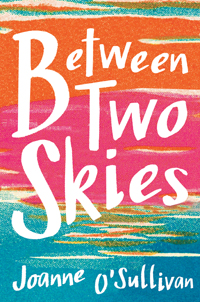 As we near the one-year anniversary of Hurricanes Harvey, Irma, and Maria, we still occasionally see news headlines about the slow pace of recovery, particularly in Puerto Rico. We are reminded that many communities still need our support, and many of us heed the call by donating to great programs like the Hispanic Federation’s UNIDOS or traveling to support recovering communities.
As we near the one-year anniversary of Hurricanes Harvey, Irma, and Maria, we still occasionally see news headlines about the slow pace of recovery, particularly in Puerto Rico. We are reminded that many communities still need our support, and many of us heed the call by donating to great programs like the Hispanic Federation’s UNIDOS or traveling to support recovering communities.
ADVERTISEMENT
ADVERTISEMENT
But, unless we are among those directly affected, we have a hard time grasping the profound upheaval that hurricanes cause in the lives of so many. We don’t think much about the slow process of building new lives, new communities – especially for those who no longer have a place to call home. I adore Joanne O’Sullivan’s 2017 historical YA novel, Between Two Skies, because it brings us intimately into the story of one family that lost everything it knew as home, and then struggled to build a new life together.
As Hurricane Katrina’s waters rose to cover her family’s coastal Louisiana fishing village, Evangeline (a “white, mostly” girl, with deep roots in the Bayou) watched from a south-Georgia hotel room, where she expected to wait for a few days, until the storm passed. Needless to say, the storm did pass, but the waters didn’t recede. With her town of Bayou Perdu submerged underwater, Evangeline and her family soon found themselves living as “hurricane refugees” in landlocked Atlanta, trying to adjust to a new school and new home, where the calls of birds on the Bayou have been replaced with the whoosh of cars on the interstate.
Evangeline is a wonderful protagonist. She is impossible not to love from the first moment we meet her, days before Katrina hits. Evangeline is “about to make history” for wearing jeans, white rubber boots, and not “an ounce of hairspray or a drop of makeup” as she prepares to be crowned Bayou Perdu’s 2005 Shrimp Queen.
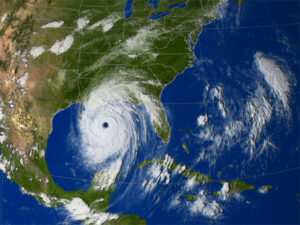 While developing a beautiful sense of place and a wonderful, memorable cast of characters, Between Two Skies also dives deep into the disorientation of exile. Through Evangeline, readers experience the anxiety of separation, the loss of close friendships, and the profound longing for those smells, tastes, rhythms and sounds of home. The story also explores so many subtle new things that come in the wake of loss: a new gender dynamic in the family, as her mother sets off to office work while her dad struggles to find meaningful employment; a new awareness of social class, as her older sister, a prom-queen-bound cheerleader in Bayou Perdu, comes to terms with her much lower status in their wealthy suburban Atlanta school; and, for Evangeline, a beautiful aching new love. She finds this love with Tru, A Vietnamese-American boy who also spends time in Atlanta as an exile from the storm.
While developing a beautiful sense of place and a wonderful, memorable cast of characters, Between Two Skies also dives deep into the disorientation of exile. Through Evangeline, readers experience the anxiety of separation, the loss of close friendships, and the profound longing for those smells, tastes, rhythms and sounds of home. The story also explores so many subtle new things that come in the wake of loss: a new gender dynamic in the family, as her mother sets off to office work while her dad struggles to find meaningful employment; a new awareness of social class, as her older sister, a prom-queen-bound cheerleader in Bayou Perdu, comes to terms with her much lower status in their wealthy suburban Atlanta school; and, for Evangeline, a beautiful aching new love. She finds this love with Tru, A Vietnamese-American boy who also spends time in Atlanta as an exile from the storm.
For fans of poetry, there’s an added bonus: the story in some ways parallels that of Henry Wadsworth Longfellow’s epic poem entitled Evangeline, A Tale of Acadie. Evangeline’s story in Between Two Skies echoes the heartache, searching, and exile of the poem, while also building a gentle, often innocent, and ultimately hopeful story.
“I wrote Between Two Skies to bear witness”: A Conversation with Joanne O’Sullivan
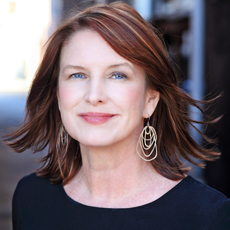 MARIE: Tell us about the moment when you knew that this story had to be written, and that you needed to be the one to write it.
MARIE: Tell us about the moment when you knew that this story had to be written, and that you needed to be the one to write it.
JOANNE: I spent a lot of time after Hurricane Katrina reading narratives from people both in New Orleans and along the Gulf Coast and their stories resonated deeply with me in part because of my own experiences in that part of the world. Although Hurricane Katrina took place in 2005, it was in 2010 after the Deepwater Horizon oil spill off the coast of Louisiana that made me turn my attention to the long-term impacts of both climate change and environmental justice in natural and man-made disasters.
The same people who had been displaced and lost their livelihoods during Katrina were once again hit with a devastating blow. A way of life based on deep reverence for nature and community is coming to an end and in a way, I wrote BETWEEN TWO SKIES to bear witness to it.
Coastal communities are the canary in the coalmine for the effects of climate change and rising sea level. People who already live on the margins are often pushed into poverty as a result of natural disasters. While recovering from the many losses that can come with a natural disaster is difficult for everyone, it’s much more difficult for those who don’t have the resources to bounce back.
In the days and weeks following a disaster, there’s a lot of attention. But it quickly fades. My story looks at what happens next. Sadly, there are a lot of parallels between what happened after Katrina and what’s currently happening in Puerto Rico and coastal Texas after last fall’s disasters.
MARIE: What are some of the things you’re doing to create the world that you want future generations to live in?
JOANNE: I volunteer for educational, environmental and other causes in my community. I support the work of organizations that are doing good work by helping them raise awareness and giving my time and money. I write and call my elected officials at all levels to urge them to put people before politics. And I vote, every time.
Our family is focused on lowering our consumption, not just of energy, but also of consumer goods. It may sound basic, but we don’t eat meat at home. The amount of energy that goes into producing meat (and the waste produced from it) is really staggering. If everyone cut back just a little, the impact on the environment would be significant.
MARIE: What’s your message for readers wanting to take action on climate change?
JOANNE: If you feel passionately about an issue, engage with it in real life, not just online: you’ll meet other people who are doing important work and you’ll demonstrate your commitment. It may sound simple, but showing up is one of the most valuable things you can do. It’s easier than ever to find opportunities to volunteer: places like Idealist and Meetup.com post notices of volunteer opportunities.
Take your showing up to the next level: protest, demonstrate, and go to your local city council meetings or state legislature. Organize at your own school. Don’t wait for leadership to present itself: take the lead yourself.
Ready to Learn More? Read On!
In our interview, Joann told me about Terrestrial, a great podcast for “staying informed on environmental issues.” She also recommended two podcasts that we featured in our April issue, when we interviewed Jodi Lynn Anderson (I’ve already listened to a few episodes of these, and I’ll tell you they keep coming up for a reason! They’re that good.):
No Place Like Home: This is a great, conversational podcast covering different angles of climate change and culture, and offering examples of people taking positive, achievable steps to create a better future.
Warm Regards: This one has some fascinating stuff untangling how climate change has become so political.
And here’s one more excellent recommendation from Joanne: “The Vanishing Island, a short (9 minute) documentary by Emmanuel Vaughn-Lee is a really powerful look at how climate change threatens vulnerable communities. I would encourage anyone with an interest in climate change to watch it to understand the real on-the-ground affects being felt in Southern Louisiana.”
Ready to take action? “Take your showing up to the next level!”
Here are a few of Joanne’s recommendations for action:
Earth Guardians is a great organization for young people who want to engage on environmental issues and climate change. There are Earth Guardian ‘crews’ all over the US and the world (or you can start one in your area).
350.org is a global group working on climate justice. You can check the website for a group near you and also start your own group. 350 holds frequent ‘actions’ on climate issues
Youth Build gives low-income young people construction skills and involves them in building affordable housing and other community assets, such as community centers and schools.
ADVERTISEMENT
ADVERTISEMENT
I encourage young people in the US to consider joining Americorps or Americorps VISTA for a year of service. There are so many projects available and it’s a great way to really have an impact in a community.
“Don’t Wait… Take the Lead Yourself.”
I’m especially grateful to Joanne for reminding me, in our interview, of the importance of engaging in real life. There is much great awareness-building happening in online communities, but getting on the ground and being face-to-face with the issues and those who are affected by them still remains, in my opinion, the best way to build strong and vibrant communities, and to make lasting and significant change in the world.
Thank you, Joanne, for this reminder!
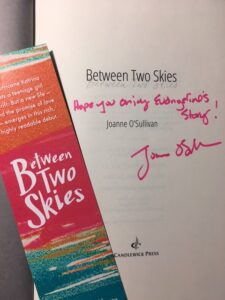 This Hurricane Season, #ReadForChange with Between Two Skies!
This Hurricane Season, #ReadForChange with Between Two Skies!
Can’t wait to get your hands on BETWEEN TWO SKIES? It just might be your lucky day! Here’s a link to the giveaway. We’ll be announcing the winner on Twitter @MarieFMarquardt and Instagram marie_marquardt August 1!
Meet Marie Marquardt
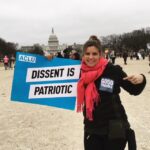
Marie Marquardt is the author of three YA novels: The Radius of Us, Dream Things True, and Flight Season. A Scholar-in-Residence at Emory University’s Candler School of Theology, Marie also has published several articles and co-authored two non-fiction books about Latin American immigration to the U.S. South. She is chair of El Refugio, a non-profit that serves detained immigrants and their families. She lives with her spouse, four kids, a dog and a bearded dragon in the book-lover’s mecca of Decatur, Georgia.
Filed under: Guest Post
About Amanda MacGregor
Amanda MacGregor works in an elementary library, loves dogs, and can be found on Twitter @CiteSomething.
ADVERTISEMENT
ADVERTISEMENT
SLJ Blog Network
2024 Books from Pura Belpré Winners
In Memorium: The Great Étienne Delessert Passes Away
Winnie-The-Pooh | Review
Parsing Religion in Public Schools
ADVERTISEMENT




